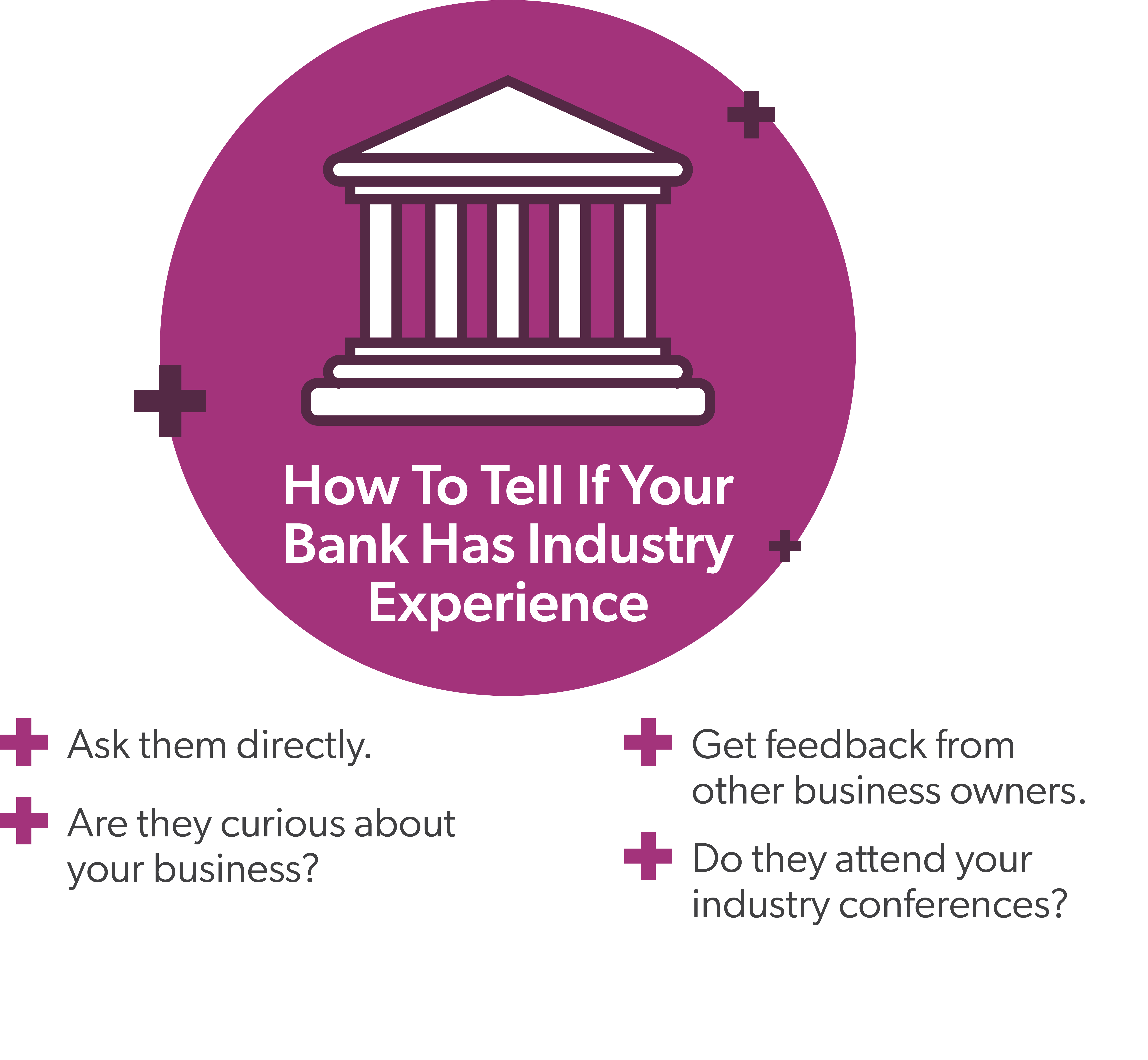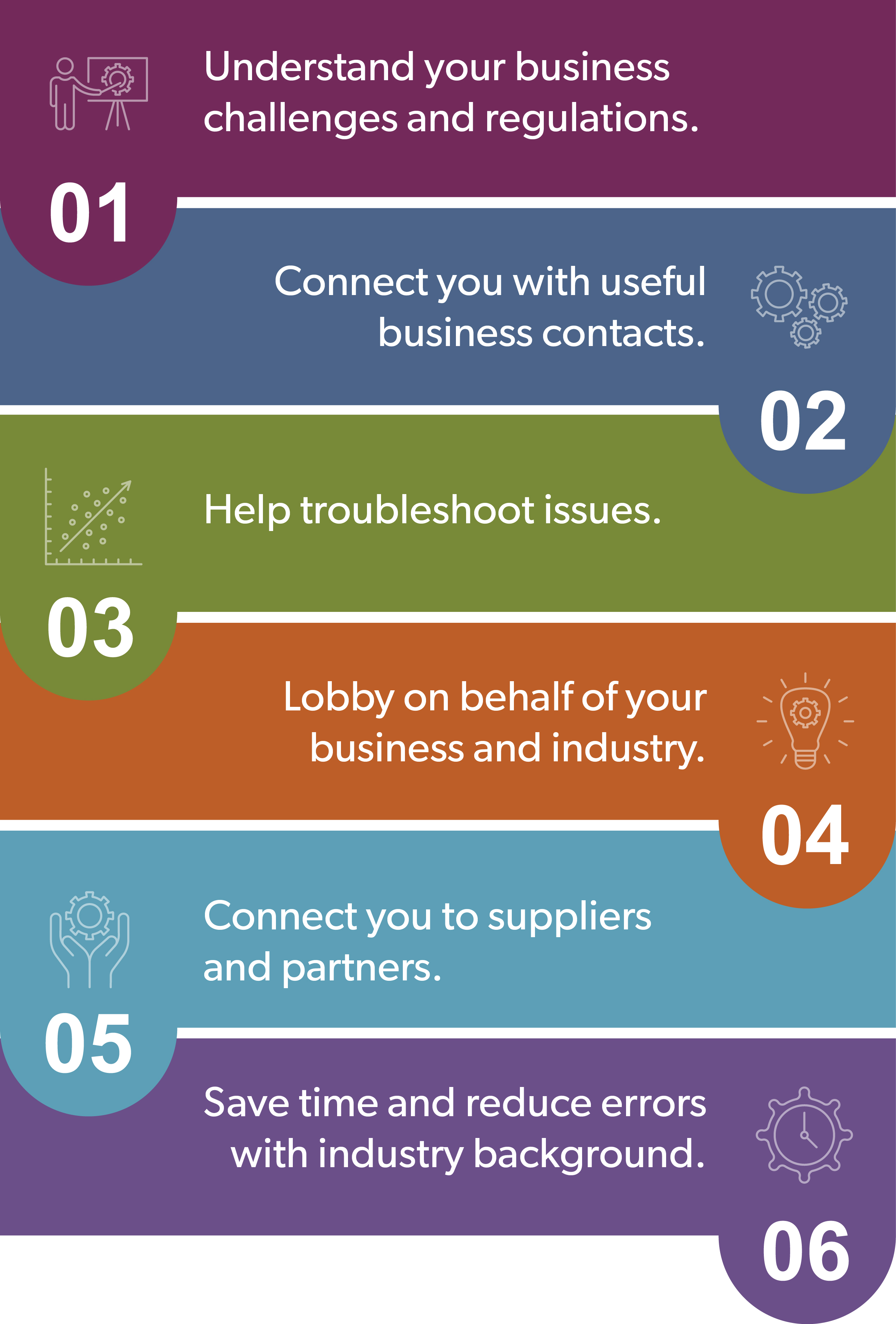Many entrepreneurs begin their first business banking relationship either where they personally bank or at the bank branch nearest their office. They have high expectations of the very same bank that’s handling home mortgages, personal saving and checking, personal money market accounts, home construction loans, personal health savings accounts, and more for their primary clientele: consumers. Businesses often take a back seat at these busy banks, and they miss out when their bankers don’t have robust business knowledge and industry experience. Here are a few reasons why.
A Brief Perspective Of Industry Specialization
Have you ever taken a trip down the wormhole that is the North American Industry Classification System (NAICS)? The federal government uses NAICS to report statistics on business activity. Businesses are grouped into 20 sectors, which is further divided into subsectors and industry groups. For our purposes, take a quick look at Manufacturing, which has 630 entire industries alone.
Even though these industries are all under the “Manufacturing” umbrella, one business making breakfast cereal and another making motor vehicles are just about as different as can be. While breakfast cereal manufacturing deals with grain inputs impacted by the war in Ukraine, motor vehicle manufacturing has dealt with a chip shortage and parts supply chain difficulties for several years. On top of that, their cash management cycles, liquidity needs, equipment replacement schedules, revenue projections all vary widely. This is repeated among the hundreds of similar specialized manufacturing subsectors.
The Case For Industry Experience In Business Banking
While manufacturing is incredibly diverse, banking hasn’t kept up that same pace. We have consumer banking and business banking, and many banks and financial institutions dabble in both.
The problem with the all-things-everyone approach is that it’s quite nearly impossible to understand everyone’s particular needs to provide expert-level financial guidance, especially when it comes to businesses. A recent published survey backs this up:
According to American Banker magazine, 26% of businesses that switched to a new bank “pointed to the previous bank’s lack of knowledge about their business as a primary reason” for switching. This figure is up 17% from less than two years ago.
It’s not just businesses, either: municipalities, school districts, and nonprofit businesses are all funded differently from most businesses. As you can imagine, businesses in highly regulated industries and public entities face their own obstacles, which differ greatly from private, family-owned companies.
Benefits of Working With Partners Who Value Industry Experience
The number one reason to work with bankers, attorneys, accountants, and others with experience in your industry is that you get much more outside of the transactional nature of these professional relationships. For instance, of course any bank can give you a checking account. But does any bank understand your business’s particular cash management cycle, payable needs, revenue projections, and more? Let’s expand on the benefits of working with bankers who have industry experience.
- Understanding your business. When you work with a banker or another professional, like an accountant or attorney, who not only specializes in businesses, but also has several clients within your industry, you know you can trust that they have a better grasp of your challenges, regulations, competition, global headwinds, supply chain concerns, staffing concerns, and planning and budgeting needs. You don’t have to spend time explaining, and re-explaining, what you do and where you’re going, and why you make certain decisions because your banker already understands how businesses like yours operates. And they understand your lingo.
- Connecting you to useful contacts. Professional services providers who specialize in your industry are naturally connected to a lot of other people who can help your business. Whether they’re also in your industry or they know it well, these connections can help you avoid common pitfalls to help you grow your organization. For instance, when a client of ours had the opportunity to buy the building they were renting, our team connected them to a trusted real estate attorney, building appraisers and inspectors, and environmental engineers to help them navigate an unfamiliar process.
Read The Case Study “Reduced Risk of Buying a Building” - Troubleshooting issues. Depending on the industry and type of business or organization, how you develop a plan to get back on the right path varies quite a bit. Again, you want to have confidence turning to your banker knowing that they will call you back with a few options or people to call.
- Lobby on behalf of your business and industry. For at least a decade, manufacturing and transportation businesses have faced a staffing crisis. I have seen firsthand when a client was connected with a local Technical College to create programming to train drivers in the specialized skill of driving and operating a concrete truck. At the end of the day, there were winners all around — the students, the school, and the business. In addition to that, First Business Bank has recently sponsored work-based learning programs with GPS Education Partners to help train people to work in manufacturing.
- Connecting you to suppliers and partners. With a deep network in your industry, your banker, attorney, or accountant may well have connections that can lead to a new vendor. Building your secondary sources for materials keeps your business moving when one supply source fumbles, so you don’t get behind or have to turn down work. Also, with the ever-increasing challenges on the human resources side, I have seen partners connect businesses with HR specialty firms to leverage their expertise, while not having to maintain a large HR department.
- Save time and reduce errors. There’s a shorthand when you work with a banker who has a depth of knowledge about your business and industry that, overall, saves you time. This experience and focus can also reduce errors and risk for your business. In highly regulated industries, which deal with the Occupational Safety and Health Administration (OSHA) and the Department of Transportation (DOT), or other areas of the federal or state government, partners with industry experience can help you stay on the right side of these entities. Regulation can truly shut down a company or at least cause it to spend a lot of money.
How Do You Know If Your Bank Has Industry Experience?
In all my years in banking, I’ve noticed that about half of bankers serving businesses are spread very thin and don’t have a high business acumen. That said, we are not experts in everything, and I’ve turned down potential clients because I know we would not be a good fit. Some ideas to conduct your due diligence on a new banker or professional services partner include:
 Ask. Ask your banker, your lawyer, your accountant: have you worked with other clients in my industry? Which ones? For how long? What would you say are the greatest challenges facing my industry? Press them on their knowledge.
Ask. Ask your banker, your lawyer, your accountant: have you worked with other clients in my industry? Which ones? For how long? What would you say are the greatest challenges facing my industry? Press them on their knowledge.- Are they curious about your business? Do they ask questions about your business that lead you to think they understand it and are learning the nuances of your particular company? Or are their questions very basic? Do they just talk about the Packers or Chiefs, the weather, and their kids…not that those topics aren’t important, but there needs to be more substance to the conversation.
- Ask other business owners. Who do they bank with? Does their banker ever call or connect them with ideas?
- Who is hanging around all your industry conferences? Yes, some drop in every now and then and don’t really know the scene and the industry, but others you see over and over likely have a niche and can be a great resource for your business.
In the end, your partners should help you make your business better, and you can demand that in your professional relationships. If you’re only getting basic service, consider that it’s time to expect more from your service providers.






